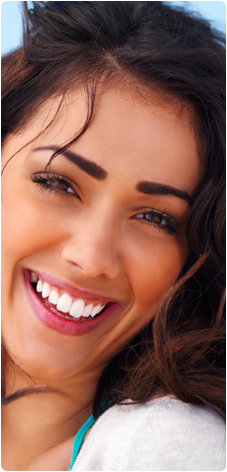
Retainer Care
Before your braces are removed, we will discuss the different types of retainers. You can access information on the different retainers under the "Types of Retainers" section of this website. Together we will determine which type of retainer, fixed or removable, will be the best choice for you. When your braces are removed, you will wear a retainer to hold your teeth in their new positions. The retainers allow your teeth to settle into a better occlusion (bite) and for your bones, gums, and muscles to adapt to your new dental arrangement. In a few days, your speech should return to normal with the appliance in place. Avoid flipping your retainer with your tongue. This can damage your teeth or break your retainer. If your retainer breaks, stop wearing it and call the office as soon as possible so it can be repaired or replaced.
Contemporary orthodontics acknowledges the fact that long-term retention is often the best option to ensure the stability of the new alignment of your teeth. In other words, it is necessary to wear your retainers indefinitely to have a lifetime of straight teeth.
Things to Remember About Your Retainer:
You will be instructed to wear your retainer full time at the beginning, which means 24 hours a day, 7 days a week. Your retainer should only be out of your mouth when brushing and eating. After wearing it full time, you will be instructed to wear it only at night. Although most individuals can maintain straight teeth by wearing the retainers at night, it will be your responsibility to wear the retainers as much as needed to keep your teeth from shifting.
- Don’t fold it in your napkin or leave it on the table at a restaurant. Garbage cans don’t make happy hunting grounds.
- Don’t put your retainer in your pocket. You might sit on it and break it. OUCH!
- Take your retainer out when swimming in a lake, swimming pool or ocean. If it falls out, you may not be able to find it.
- Animals and younger children love to play with it. Please make sure your retainer is in your mouth at all times. It should only be out of your mouth when brushing and eating.
- Speech may be a temporary problem, but after a few days your speech should return to normal.
- Your lower retainer may be a fixed retainer bonded to your teeth. It is not considered permanent and can be broken or detached from your teeth if you are not careful with it.
- Bring your retainers to each check-up appointment.
- If your lower bonded retainer wire comes out, keep it, call our office and bring it to your appointment for rebonding.
- The first set of retainers is included in your treatment fee. Any repair to, replacement of your retainer, or rebonding of your lower retainer, will result in an additional charge.
- Keep your retainer away from any source of heat, i.e. the dashboard of your car in the summer. Do not boil your retainer or put it in hot water. Do not put your retainer in the microwave or the dishwasher.
- Keep things clean! Be sure to brush your teeth without your retainers in.
- Brush your retainer with a toothbrush using toothpaste or water.
If you experience any problems with your retainer, it is important that you contact our office immediately. If the retainer does not fit or is broken or lost, a new retainer can be made while your teeth are straight. If you wait, the teeth will become crooked and a retainer will not straighten your teeth. Even though there will be a charge for your new retainer, the cost of a new retainer to keep your teeth straight is much less than the cost to go back into braces to straighten your teeth again.
Changes After Treatment:
Teeth have a tendency to change their positions after treatment. The more pronounced the misalignment of the teeth or depth of the bite, the more likely it is that your teeth or bite may shift or "relapse" somewhat toward their original position. As a general rule, teeth shift throughout life. Very few people have naturally straight teeth. Although the shifting will probably be slight and very gradual, this minor degree of relapse may enhance the normal settling of the individual tooth positions and may help will stabilize the bite. The lower front teeth have the greatest tendency to relapse. In some instances, we overcorrect some teeth in anticipation of movement after the retention period. However, some relapse may occur despite our best efforts and your conscientious cooperation in wearing the prescribed retainers.
















NEWNAN GA 30263